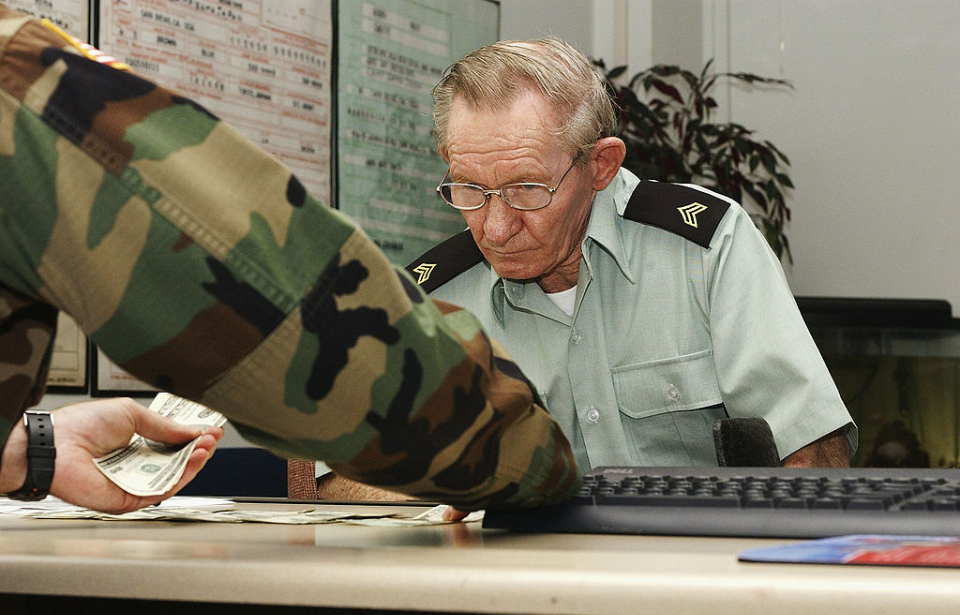Charles Robert Jenkins enlisted when he was 15 years old
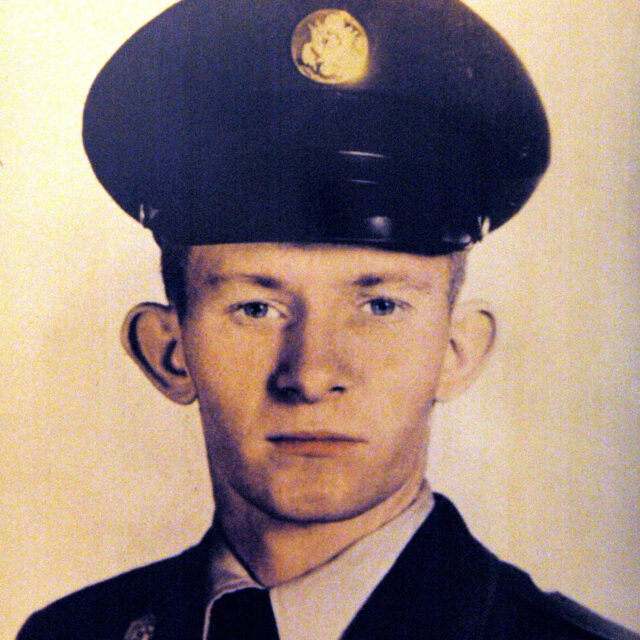
Charles Robert Jenkins entered the world on February 18, 1940, in Rich Square, North Carolina. His early years were marked by a sports injury and the passing of his father, which contributed to him not completing his education at Rich Square High School.
Lacking a high school diploma, Jenkins found his job prospects restricted. As a result, this led him to enlist in the North Carolina National Guard, serving from 1955 to 1958, which covered the majority of his teenage years.
Joining the US Army

After being honorably discharged, the 18-year-old enlisted in the Army and was sent to Fort Hood, Texas (now called Fort Cavazos). There, he served as an infantry soldier specializing in light weapons.
Not long after, Jenkins volunteered to deploy with the 7th Infantry Division to South Korea. He served there from August 1960 to September 1961 before returning to the United States. After that, he was assigned to the 3rd Armored Division and stationed in West Germany, where he served until 1964.
Deserting the US Army
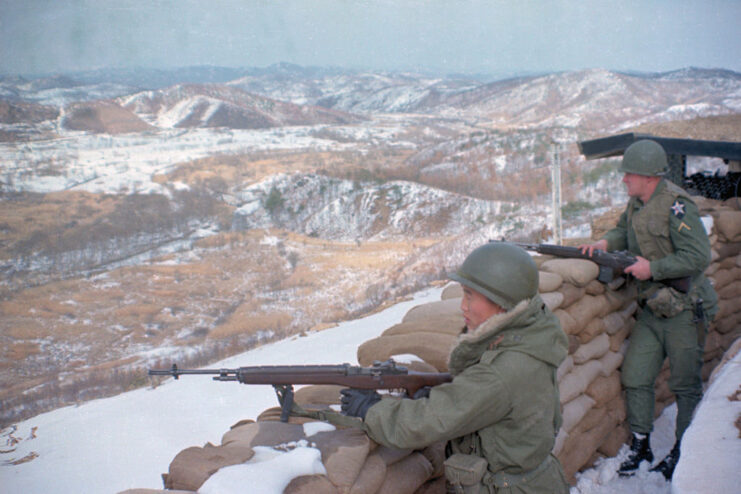
In 1964, Charles Robert Jenkins opted for a second tour in South Korea, where he served in the Korean Demilitarized Zone (DMZ). During this time, he was assigned to the 8th Cavalry Regiment of the 1st Cavalry Division.
On January 5, 1965, Jenkins made a decision that would alter the course of his life forever. Facing rumors that his regiment might be deployed to Vietnam and experiencing increasingly tense patrols, the sergeant crossed the DMZ into North Korea. His plan was to seek asylum with the Soviets, hoping they would facilitate his return to the United States through a prisoner exchange.
Crossing the Korean Demilitarized Zone (DMZ)
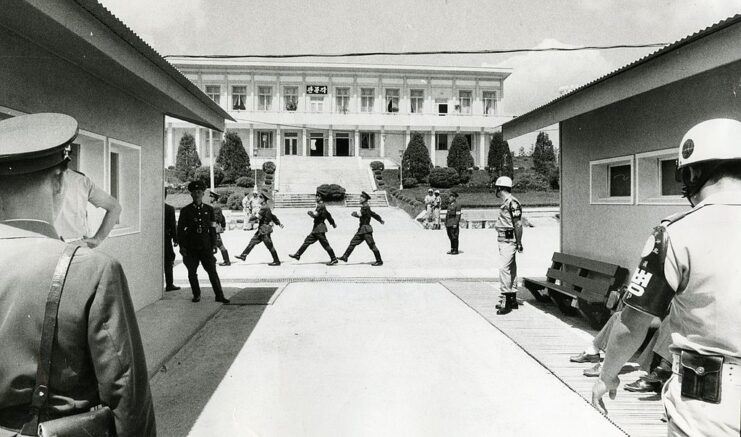
That fateful night, Jenkins put away 10 beers before going on patrol with his comrades. Around 2:30 AM, he told them he’d heard a noise and went to check it. This was when he made his great escape. As he approached the DMZ, he took the ammunition out of his M14 rifle and tied a white shirt to the top as a sign of peace.
Jenkins then crossed over into North Korea, expecting to see the US again very soon. Instead, he was captured, interrogated and held prisoner for 39 and a half years.
Immediately regretting his decision
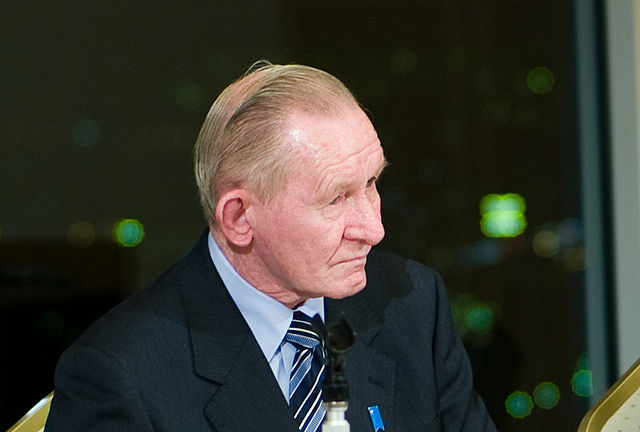
It wasn’t long after his capture and detention that Charles Robert Jenkins regretted his decision to defect to North Korea; it was not the experience he’d expected it to be.
In a 2006 interview with British publication The Independent, he called his desertion “the biggest mistake I ever made,” and in his 2008 memoir, The Reluctant Communist: My Desertion, Court-Martial and 40-Year Imprisonment in North Korea, wrote that he hadn’t realized the nation was essentially a giant “prison.”
He also explained his mindset at the time, writing, “I was not thinking clearly. But at the time my decisions had a logic to them that made my actions seem almost inevitable.”
Word of Charles Robert Jenkins’ defection spreads
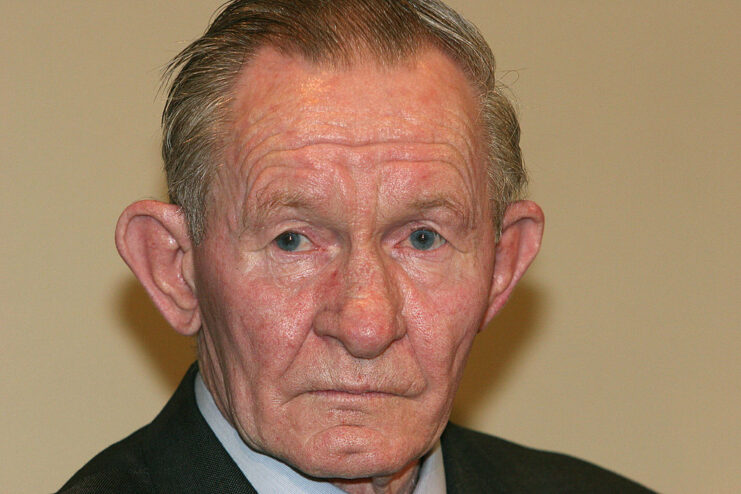
Just under two weeks after crossing the DMZ, Charles Robert Jenkins’ defection was announced on North Korean radio, which stated his decision was “because of disgust with conditions in South Korea and that he believed life was better under the Communists.”
The United States confirmed him to be a deserter based on four letters he’d sent to his mother, one of which read, “Forgive me, for I know what I must do. Tell my family I love them. Love, Charles.”
Charles Robert Jenkins was housed with other defectors
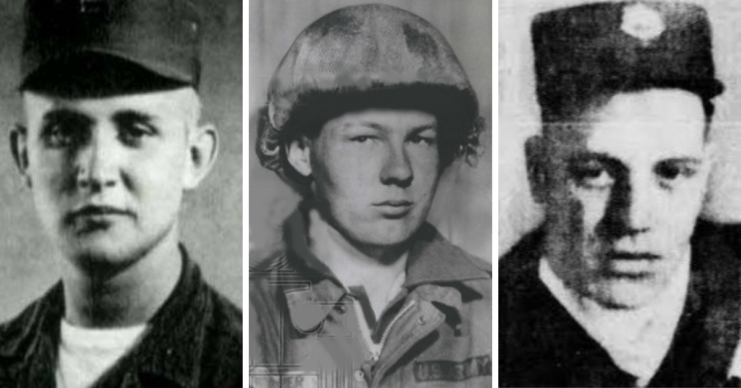
Jenkins was housed with three other American deserters while under the regime’s watchful eye:
- James Dresnok, who defected in August 1962.
- Larry Abshier, who crossed the DMZ in May 1962.
- Jerry Parrish, who deserted his post in 1963.
The conditions the four were held in were horrible; they shared one room and were beaten when they failed to properly memorize the works of Kim Il-Sung. While the group had decided to cross over into North Korea, they hadn’t necessarily planned to remain. In 1966, they attempted to follow Jenkins’ original plan to seek asylum through the Soviet embassy, but they were unsuccessful.
Working for the North Koreans
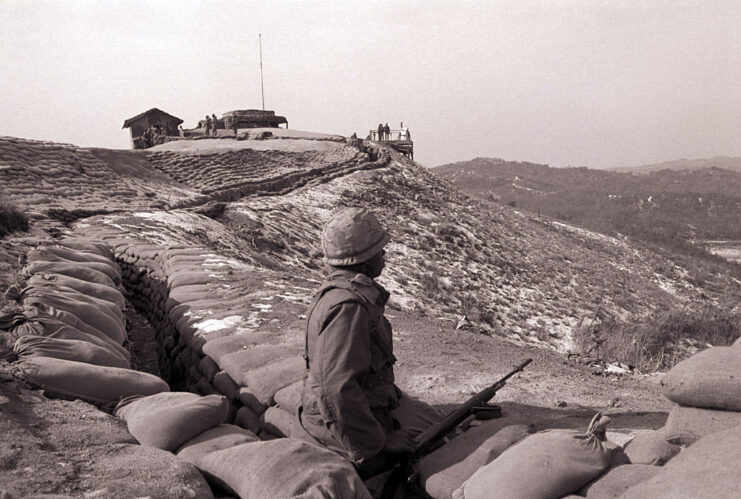
Years later, the four men were granted citizenship, provided with homes and jobs, and eventually given wives. However, despite these changes, their living conditions remained much the same. Charles Robert Jenkins later wrote that he “suffered from enough cold, hunger, beatings, and mental torture to frequently make me wish I was dead.”
Even though they were officially considered “citizens,” their captors still didn’t trust them. Their homes were bugged and surrounded by barbed wire to prevent any escape attempts. The men were also forced to act in propaganda films, playing the roles of villainous Americans. Jenkins was assigned to teach English to North Korean spies and soldiers, but his thick Southern accent eventually led to his removal from the job.
Charles Robert Jenkins marries Hitomi Soga
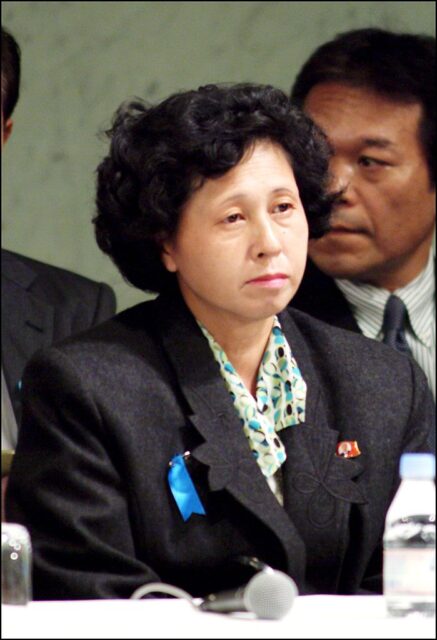
In 1980, Charles Robert Jenkins was introduced to Hitomi Soga, a Japanese nurse who’d been kidnapped a few years earlier to serve as a teacher for North Korean spies. Their union was forced, with the ceremony taking place just weeks after they first met.
Despite the lack of choice in the matter, the two developed a deep bond. Jenkins later told The Independent, “When I met her, my life changed a lot. Me and her together—I knew we could make it in North Korea. And we did.”
Over the next five years, they had two daughters, Mika (1983) and Brinda (1985).
Hitomi Soga attempts to free her husband
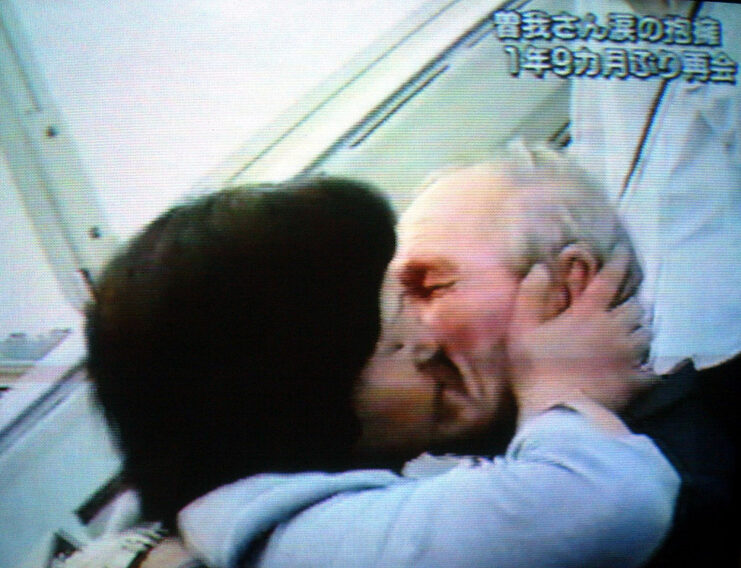
Charles Robert Jenkins was eventually able to leave North Korea because of the determined efforts of his wife, Hitomi Soga. In 2002, following the signing of the Japan-North Korea Pyongyang Declaration, Soga and four other abductees were allowed to visit Japan for what was meant to be a 10-day stay. Instead of returning, she chose to remain in Japan and began working with the government to try to secure a pardon for Jenkins from the United States. Unfortunately, those attempts did not succeed.
At that time, if Jenkins had joined Soga in Japan, he risked being prosecuted by the U.S. military for desertion. The statute of limitations was 40 years—and he had been gone for 39 and a half. Concerned that he might face the death penalty, Jenkins made the painful decision to stay behind in North Korea with their daughters.
Charles Robert Jenkins is finally freed
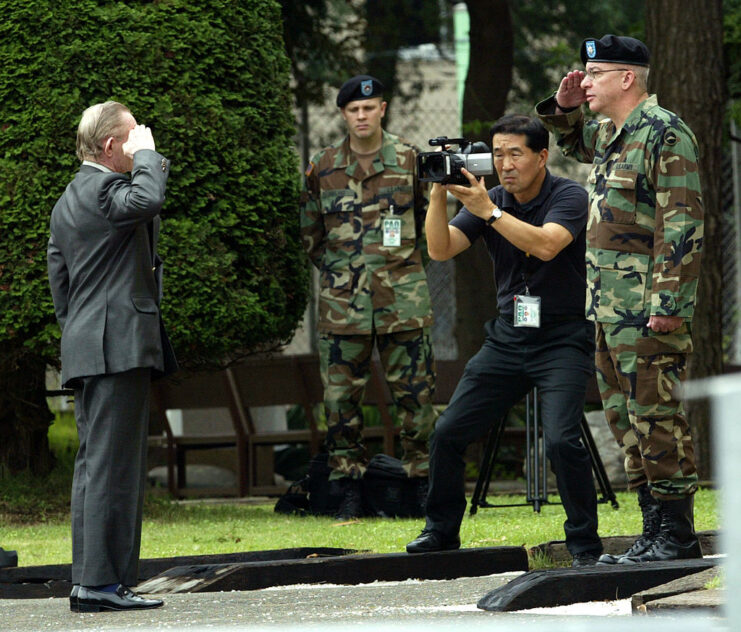
Eventually, North Korea allowed Charles Robert Jenkins to leave, and he reunited with his wife in Indonesia. That made him the only post-Korean War American defector to ever leave the restrictive country. The evidence of his mistreatment was obvious. He was 100 pounds, had lost his appendix and a testicle, and part of his US Army tattoo had been cut off without proper anesthesia.
Although Japan had promised Hitoma Soga, Jenkins and their daughters residency, there was still the matter of his court-martial. Jenkins arrived at Camp Zama, Japan, on September 11, 2004, where Lt. Col. Paul Nigara was awaiting him. Jenkins, by then 64, greeted him with a salute, saying, “Sir, I’m Sergeant Jenkins and I’m reporting.”
Held accountable for his desertion
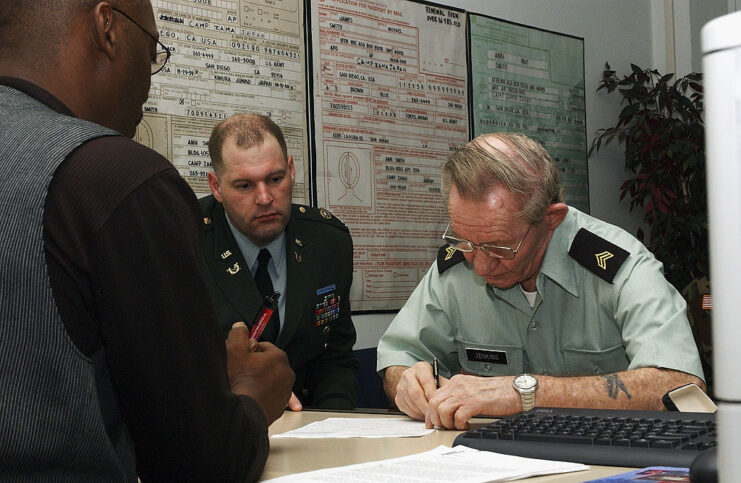
Jenkins’ trial wasn’t held until November 3, 2004. He pleaded guilty to desertion and aiding the enemy by teaching English. He was initially sentenced to six months confinement, but this was later changed to 30 days. The former Army soldier also forfeited all his back pay, was demoted to the rank of private and received a dishonorable discharge.
Despite the ruling, Charles Robert Jenkins was released on good behavior after 25 days. He was reportedly given pay for the time served. In an interview years later, he said that the sentence was “all a big set-up for the outside world so it looked like justice was done.”
Adapting to civilian life
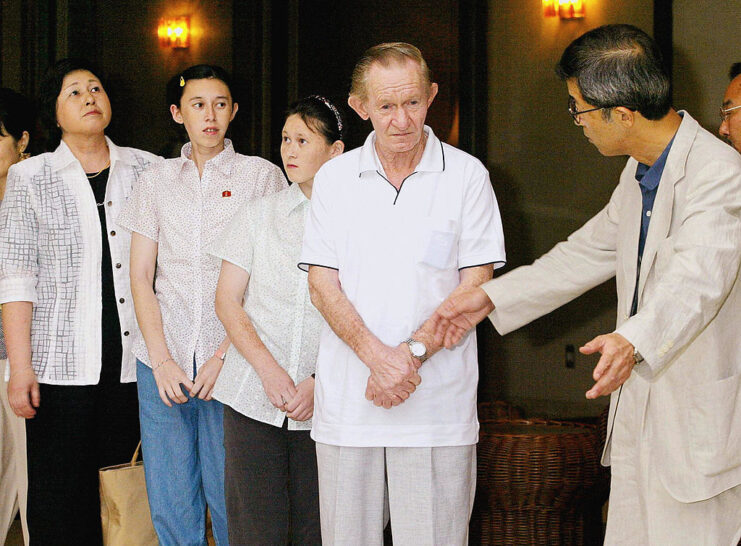
Once his time was served, Jenkins and his family moved to his wife’s childhood home, with a trip made to North Carolina to see his aging mother. Although he’d escaped North Korea, he lived the rest of his life worried they’d come for him. He recounted his experiences in his aforementioned memoir.
More from us: National Emergency Command Post Afloat: The ‘Floating White Houses’ for Times of Nuclear War
Jenkins lived out the rest of his life as a major celebrity in Japan, receiving permanent residency in July 2008. In his spare time, he followed his passion for motorcycling and worked at a local museum. On December 11, 2017, at the age of 77, Jenkins passed away. The cause was attributed to cardiovascular disease.
